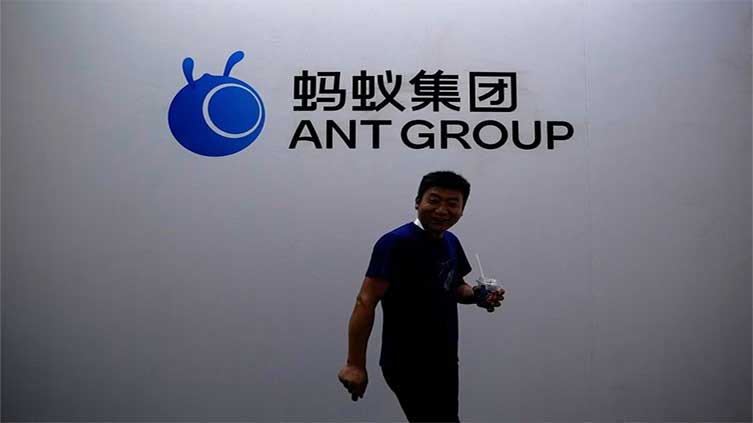China slaps whooping 7.1bn yuan fine on Ant Group

Business
The penalty amounts to one of the largest ever fines for an internet company in China
HONG KONG (Reuters) - Chinese authorities announced a 7.12 billion yuan ($984 million) fine for Ant Group, ending a years-long regulatory overhaul of the fintech company and marking a key step to concluding a crackdown on the country's internet sector.
China's central bank said that financial regulators would fine Ant and its subsidiaries a total of 7.12 billion yuan, require it to stop operations of its crowdfunded medical aid service Xianghubao and compensate users.
The penalty amounts to one of the largest ever fines for an internet company in China.
Ant and its subsidiaries had violated laws and regulations in areas including corporate governance, financial consumer protection, payment and settlement business, as well as anti-money laundering obligations, the People's Bank of China (PBOC) said in a statement.
Ant said it had completed its rectification work. "We will comply with the terms of the penalty in all earnestness and sincerity and continue to further enhance our compliance governance." It closed Xianghubao in 2021.
Besides Ant, the Chinese authorities also announced they had fined Ping An Bank, insurer PICC Property and Casualty, Postal Savings Bank and Tencent Holdings' online payment platform Tenpay, with Tenpay given a penalty of nearly 3 billion yuan, for committing violations in areas such as customer data management.
"Most of the prominent problems for platform companies' financial businesses have been rectified," said the PBOC, adding that the financial regulators would next shift focus from focusing on specific companies to overall regulation of the industry.
FOLLOWS MA'S RETURN TO CHINA
Founded by billionaire Jack Ma, Ant operates China's ubiquitous mobile payment app Alipay and undertakes consumer lending and insurance products distribution among other businesses. In mid-2020, before its IPO was pulled, it was valued by some investors at more than $300 billion.
Since April 2021, Ant has been formally undergoing a sweeping business restructuring, which includes turning itself into a financial holding company that would subject it to rules and capital requirements similar to those for banks.
Jeffrey Towson, a partner of TechMoat consulting, said Ant would have a "fantastic" growth path going forward now as its regulatory issues, which mainly impacted its domestic payment and credit businesses, were resolved.
"Alipay+ is now going international. Ant's tech services business is also very well positioned for B2B contracts," he said.
The announcement of the fine comes soon after China appointed central bank Deputy Governor Pan Gongsheng as the bank's party secretary, a move two policy sources told Reuters would be a prelude to appointing him governor.
Pan is one of the main regulatory officials overseeing Ant's revamp and has attended several meetings with the company about the fine and the revamp, according to the sources.
The PBOC did not respond to a request for comment on Pan's role.
The sources had earlier said that the fine on Ant had been revised to at least 8 billion yuan. Reuters reported in April that Chinese regulators were considering fining Ant about 5 billion yuan, a lower sum than what they initially had in mind.
Ant's fine is the largest regulatory penalty imposed on a Chinese internet company since ride-hailing major Didi Global was fined $1.2 billion by China's cybersecurity regulator last year.
Alibaba was fined a record 18 billion yuan in 2021 for antitrust violations.
Ant's penalty comes at a time when Chinese authorities are keen to boost private sector confidence as the $17 trillion economy struggles to recover despite the lifting of zero-COVID-19 curbs earlier this year.
It also follows the return to China of Ma earlier this year after spending many months overseas. Ma, who also founded Alibaba, withdrew from public view in late 2020 after giving a speech criticising China's regulatory system, an event widely regarded as a trigger for the crackdown on industry.
He previously owned more than 50% of the voting rights at Ant, but in January it said he would give up control of the company as part of the revamp.

